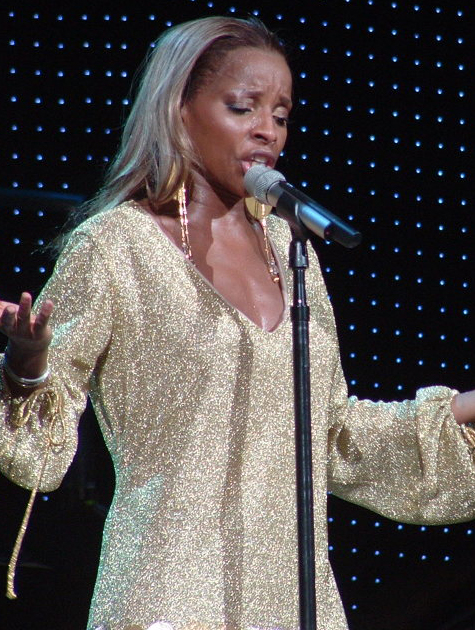
Hip hop soul
Hip hop soul is a subgenre of contemporary R&B music, most popular during the early and mid 1990s,[1] which fuses R&B or soul singing with hip hop musical production.[1] The subgenre had evolved from a previous R&B subgenre, new jack swing,[2] which had incorporated hip-hop influences into R&B music.[2] By contrast, hip hop soul is, as described in The Encyclopedia of African American Music, "quite literally soul singing over hip hop grooves".[1]
Hip hop soul
The genre was most popular during the mid and late 1990s[1] with artists such as Mary J. Blige (known as the "Queen of Hip-Hop Soul"), Jodeci, Faith Evans, TLC, and R. Kelly.[2] By the late 1990s, hip hop soul would lead to the creation of neo soul,[1][2] which retained the hip hop and R&B influences while also adding elements of classic 1970s soul music.[1]
Description[edit]
Hip hop soul evolved directly from new jack swing, a form of contemporary R&B popularized by artists and producers such as Teddy Riley and his group Guy, Keith Sweat, and Bobby Brown.[1][3] New jack swing had incorporated elements of hip-hop music—primarily hip-hop-inspired drum tracks and rapped verses[1]—into contemporary R&B music also heavily inspired by the work of Prince.
[3] Hip hop soul shifted from new jack swing's reliance on synth-heavy production and took the hip-hop/R&B synthesis further by having R&B singers sing directly over the types of sample-heavy backing tracks typically found in contemporary hip-hop recordings like boom bap.[1][3]
The creation and evolution of hip hop soul led to an increasingly symbiotic relationship between its parent genres.[4][5] Hip hop soul acts presented themselves in styles and personas comparable to those of rappers[3][6]—dressing in hip hop fashions and adopting a tougher image than the traditional pop-friendly personas of R&B artists[3][6] (the existence and popularity of hip hop soul also had the opposite effect on mainstream rappers, who took on some of the elements of the R&B artists' personas to become more palatable to mainstream audiences).[5] The subgenre increased the popularity of R&B music among the younger hip-hop audience, leading to better sales and airplay success for hip hop soul recordings versus previous forms of post-disco R&B, on the Billboard pop music sales charts.[7] It also increased the popularity of hip-hop music and culture with older audiences and corporations looking to market urban music.[8] However, the creation of hip hop soul has been argued by music journalists and fans of R&B music to have "killed off" traditional styles of R&B.[5]